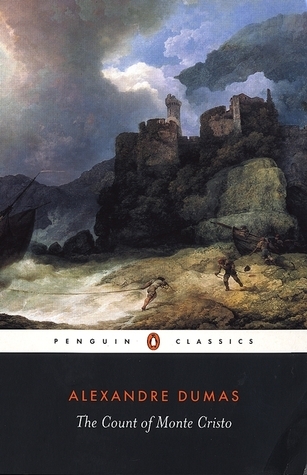Title: A Tale of Revenge and Redemption: "The Count of Monte Cristo" by Alexandre Dumas
"The Count of Monte Cristo" by Alexandre Dumas is a sweeping epic that unfolds like a tapestry of revenge, betrayal, and redemption. First published in 1844, this classic novel has stood the test of time, captivating readers with its intricate plot, memorable characters, and exploration of the complex nature of justice.
At its heart, the story follows Edmond Dantès, a young sailor falsely accused of treason and imprisoned in the Château d'If. Dantès's transformation from an innocent and hopeful young man into the enigmatic and vengeful Count of Monte Cristo is the linchpin of this narrative. As he escapes from his unjust captivity and uncovers the truth behind his betrayal, Dantès's quest for retribution becomes a mesmerizing journey that spans continents and decades.
One of the novel's strengths lies in Dumas's masterful storytelling, which weaves together a rich tapestry of adventure, intrigue, and human drama. The intricate plotting, filled with twists and turns, keeps readers on the edge of their seats, creating an immersive reading experience that transcends its 19th-century origins. The narrative unfolds with the precision of a well-crafted revenge plot, revealing layers of deception, conspiracy, and the consequences of unchecked ambition.
The characters in "The Count of Monte Cristo" are both iconic and deeply human. Dantès, with his complex motivations and moral dilemmas, is a compelling protagonist. The supporting cast, from the loyal Mercedes to the morally ambiguous Fernand and the beguiling Haydée, adds depth to the narrative. Each character is a piece in the intricate puzzle of the Count's revenge, contributing to the novel's exploration of the human condition.
The theme of revenge is central to the novel, and Dumas delves into the psychological and moral complexities that accompany the pursuit of vengeance. As the Count orchestrates his intricate schemes, the narrative invites readers to question the nature of justice and the consequences of unchecked power. The exploration of morality, forgiveness, and the ultimate cost of revenge adds a layer of philosophical depth to the novel.
Dumas's prose, expertly translated, is evocative and vibrant. The novel's rich descriptions of settings, from the opulent salons of Paris to the desolate Château d'If, transport readers to a bygone era. The dialogue is sharp, and the narrative is punctuated with memorable quotes that resonate with timeless wisdom.
In conclusion, "The Count of Monte Cristo" is a literary masterpiece that continues to captivate readers with its timeless tale of justice, revenge, and redemption. Alexandre Dumas's exploration of human nature, coupled with the novel's thrilling plot and memorable characters, has solidified its place as one of the greatest works of literature. This classic novel stands as a testament to the enduring power of a well-crafted story to transcend time and captivate the human imagination.

Comments
Post a Comment